Physician Education
Hospice care has moved from an alternative that developed outside of standard medicine to being a scientifically proven and essential element of good medical care. Most hospice care is provided in a patient’s home and is fundamentally different than care provided in hospitals or outpatient offices. It follows that physicians should experience in-home hospice care during their medical training.
The Elizabeth Hospice is proud to be a teaching affiliate of the UCSD School of Medicine, UCSD Health, Scripps Health, and numerous other medical schools and residency training programs in the US and globally.
Medical Education occurs in 3 steps:
- Medical School. Four years of education following four years of undergraduate education. The first two years are spent mainly in the classroom learning the science of medicine. The last two years are spent in clinical clerkships where they learn to apply science to the art of direct patient care.
- Residency Training. 3-5 years of mentored practice in a specialty.
- Fellowship Training. 1-3 years of mentored practice in a subspecialty.
Hospice & Palliative Medicine Fellows 2024 – 2025
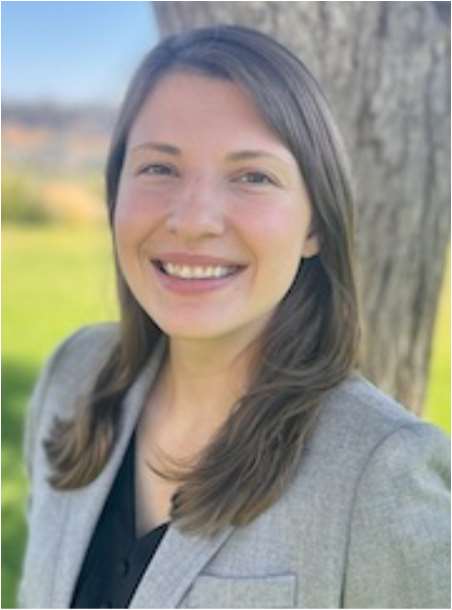
Anna Astashchanka, MD
Dr. Astashchanka attended the University of Colorado School of Medicine and completed her Internal Medicine residency at UC San Diego. She is currently a Pulmonary Disease and Critical Care Medicine fellow at UC San Diego. Outside of work, she enjoys writing fiction.
“When had medicine became more about doing things to people rather than for people? It reminded me of a poem I read as a college student that I ended up finding again during fellowship - End of Days by Marge Piercy. One verse reads, 'I want someone who loves me there, not a doctor with forty patients and his morality to keep me sort of, kind of alive or sort of undead. Why are we more rational and kinder to our pets than with ourselves or our parents? Death is not the worst thing; denying it can be.'”
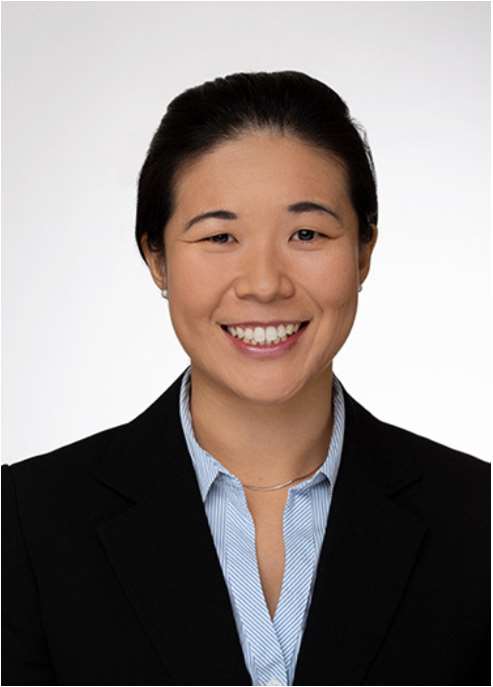
Julia Bu, MD
Dr. Bu earned her degree from Case Western Reserve University and completed a Neurology residency at UC San Diego, where she was a chief resident. She is currently a fellow in Vascular Neurology at UC San Diego. Her hobbies include marathon running and kickboxing.
“I aim to modify the adage ‘Time is brain’, and propose the addendum ‘Time is brain, but outside that window a whole person and community still remain’. Though we have made significant advancements in the acute treatment of stroke, I want to dedicate my career to equitable and meaningful care for patients both inside and outside the acute therapy window as a palliative care trained vascular neurologist.”
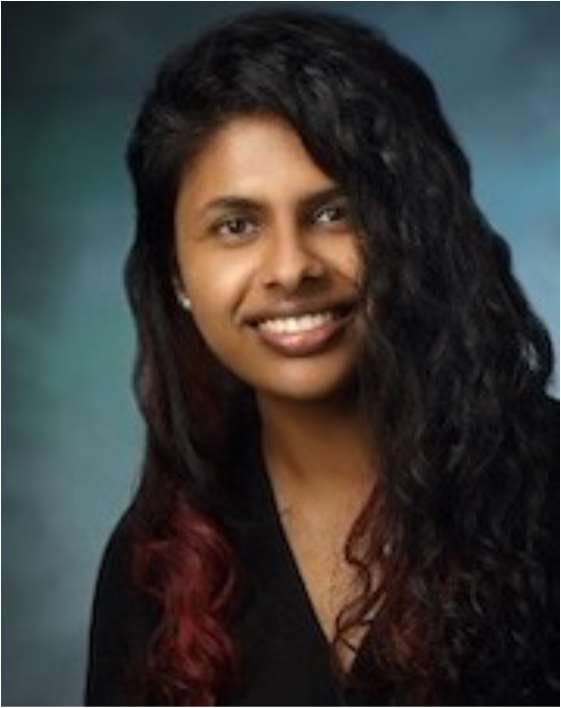
Lakshmi Kirkire, MD
Dr. Kirkire completed her medical training at the University of Chicago and is currently an Emergency Medicine resident at Johns Hopkins.
“As a medical student, I had always thought that palliative care was hospice care, reserved only for patients at the end of their disease course. As I am now nearing the end of my training, I've learned that palliative care physicians play a key role in every step of patient care, from patient advocacy and helping patients understand their diagnoses, to symptom management and advanced care planning, all the way up to goals of care and hospice. I've found that this spectrum of practice has a large role to play in Emergency Medicine.”
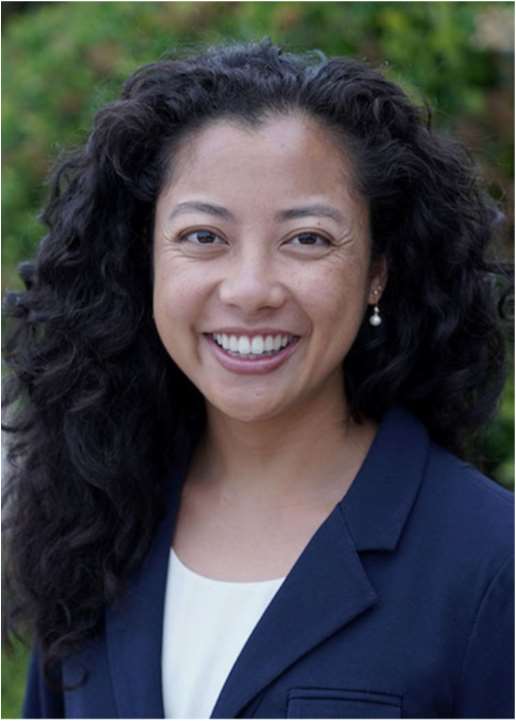
Megan Lau, MD
Dr. Lau is a graduate of the UC San Diego School of Medicine and is currently an Internal Medicine resident at UC San Diego. Outside of work, she is a member of a Spanish podcast club.
“During residency, I have had the privilege of caring for patients in all stages of life with diverse backgrounds and a variety of medical conditions. Amidst that variety, my interactions with patients facing end-of-life decisions have been the most impactful. This has reinforced my desire to be a part of a field that provides personalized, patient-centered care to individuals and their families.”
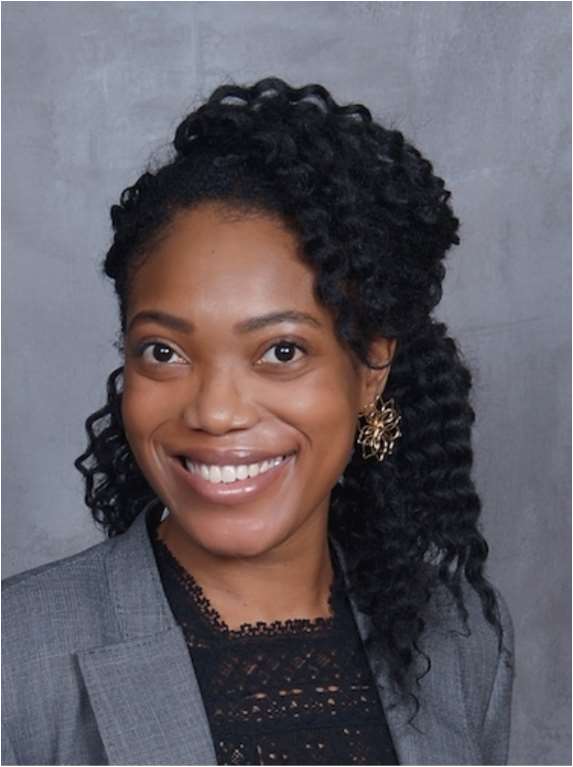
Vivian Okonta, DO, MPH
Dr. Okonta earned her DO from Western University of Health Sciences College of Osteopathic Medicine of the Pacific and an MPH from USC. She is now a Family Medicine resident at UC Irvine and has an interest in narrative medicine.
“Hospice and Palliative Medicine encompasses social, psychological, and spiritual wellbeing for each patient, all of which influence overall physical health and quality of life. According to a report published by the World Health Organization in 2020, less than 15% of those in need of Hospice and Palliative Care actually receive it. I look forward to a career in which I can be part of the solution to this area of need.”
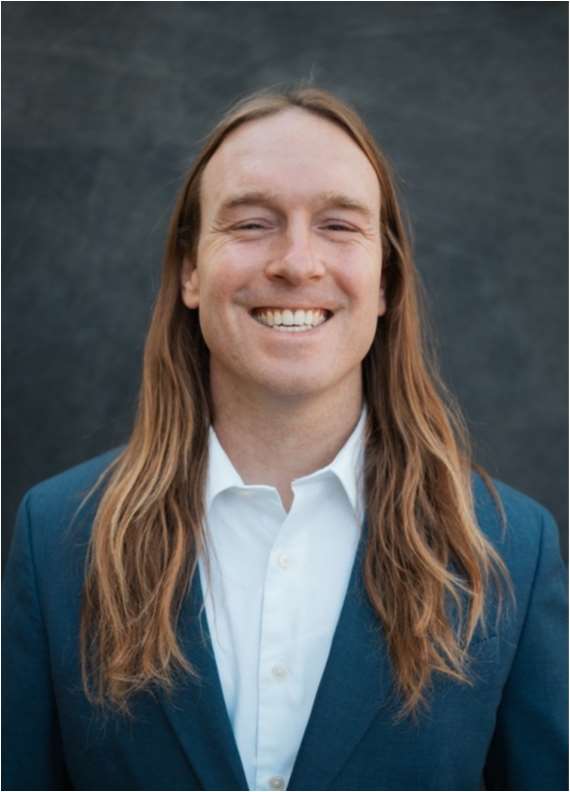
Matthew Schoen, MD
Dr. Schoen attended Stanford’s School of Medicine and is currently an Emergency Medicine resident at Stanford. Outside of work, he has run multiple marathons.
“My personal and professional journeys have encouraged me to engage with suffering and define my role as someone who helps others face uncertainty. I have found a home within the field of hospice and palliative care. I am inspired to keep this work at the heart of my career, as I continue to follow my passions for medical education and providing comfort in crisis.”
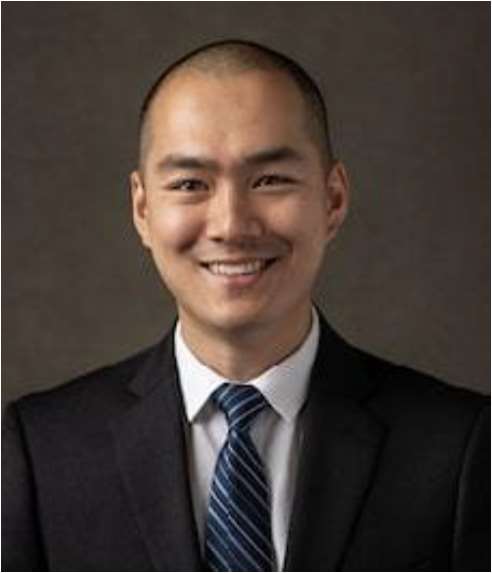
Nicholas Tom, MD
Dr. Tom graduated from UC Davis’s School of Medicine and is completing his residency in Internal Medicine at Kaiser Permanente Oakland. He practices multiple types of martial arts, including karate and Wing Chun.
“I have found my calling in Palliative Medicine, caring for patients whose medical complexity is matched by their social, emotional, and spiritual needs. The relationships I have formed with these patients and their care teams, and learning about their stories and values, have shaped the way I practice medicine and communicate with others. In my career, I hope to further explore disparities in access to end-of-life care and develop care models which help to narrow this gap.”
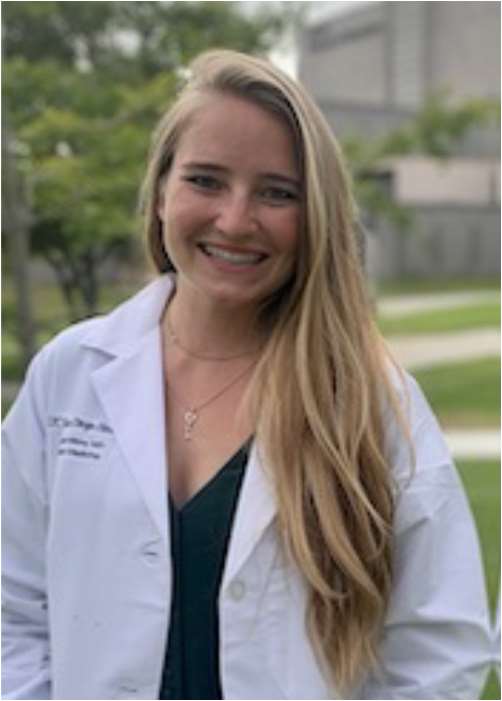
Julia Wilkins, MD
Dr. Wilkins completed her medical education at New York Medical College and is currently a Family Medicine resident at UC San Diego.
“My greatest joy as a physician comes from sharing life's most important moments with patients and their families. These opportunities tend to come at life transitions, such as the birth of a baby or the death of a loved one. To walk with other people in these moments is a precious gift, and not something I ever take for granted. It is common to hear physicians—especially residents—say, ‘I've forgotten why I went into medicine in the first place.’ Too often the job is tied to checklists and documentation rather than true human connection. Being present with patients as they experience life's transitions is deeply gratifying for me, never more so than when they are confronting terminal illness.”
Hospice & Palliative Medicine Fellows 2025 – 2026
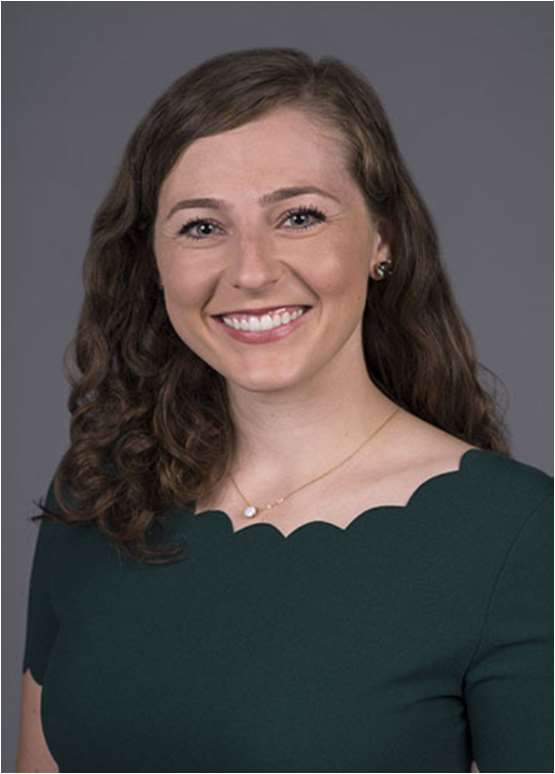
April Butler, MD
April Butler is a graduate of the University of Louisville School of Medicine and is currently a chief resident at UC San Diego, where she completed her residency in Internal Medicine/Pediatrics. Outside of work, she enjoys traveling, playing golf, and ice cream.
“Keeping patient dignity and humanity at the center of care and forming partnerships with patients and their families anchored me during my residency, and I want to continue to be a part of a field that provides personalized, patient-centered care. I am excited to become a part of a multidisciplinary team with the goal that embodies medicine to me: doing what is best for the patient.”
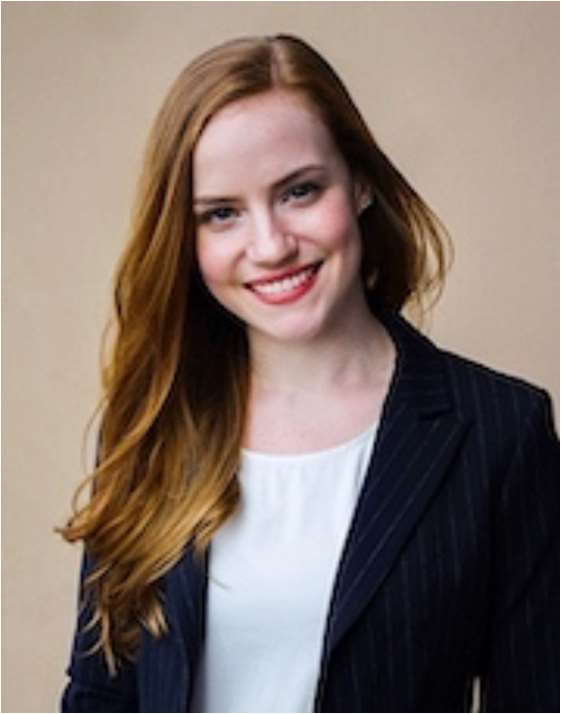
Errica Capossela, DO, MS
Errica Capossela attended the Touro College of Osteopathic Medicine and completed a residency in Pediatrics at Cohen Children’s Medical Center at Northwell Health. She is currently a fellow in Neonatal-Perinatal Medicine at UC San Diego and Rady Children’s. Her hobbies include snowboarding, yoga, baking, and knitting.
“I recognize now more than ever how we as a medical community need more physicians trained in palliative care, especially in pediatrics. To this day, functioning in a palliative care role is one of the few positions in which I have been struck with the sense that I am doing what I am supposed to be doing.”
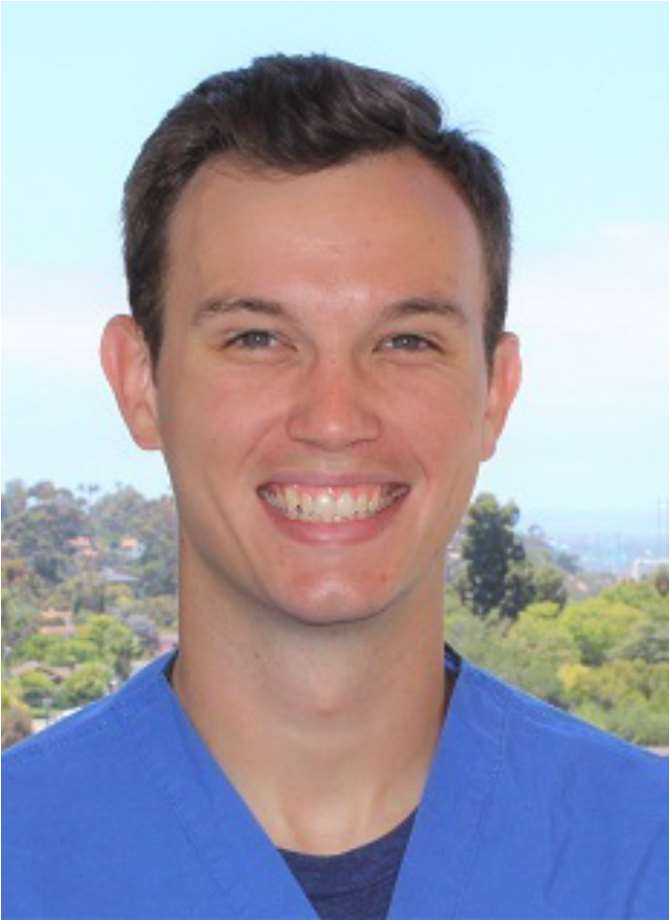
Zachary Fica, MD
Zachary Fica earned an MD from the University of Utah and is currently a chief resident in Emergency Medicine at UC San Diego. He enjoys birding, triathlons, and games like Dungeons and Dragons.
“As a physician, the most rewarding part of my job is when I can help people in their lowest and most vulnerable moments. Sometimes, that means using knowledge and technical skills to cure their disease or manage their symptoms. But most often, helping people means being a compassionate caretaker who is willing to listen, witness, and be present and honest. The opportunities I’ve had to help my patients in that way remind me why I chose healthcare and why I want to continue my training in Hospice and Palliative Medicine.”
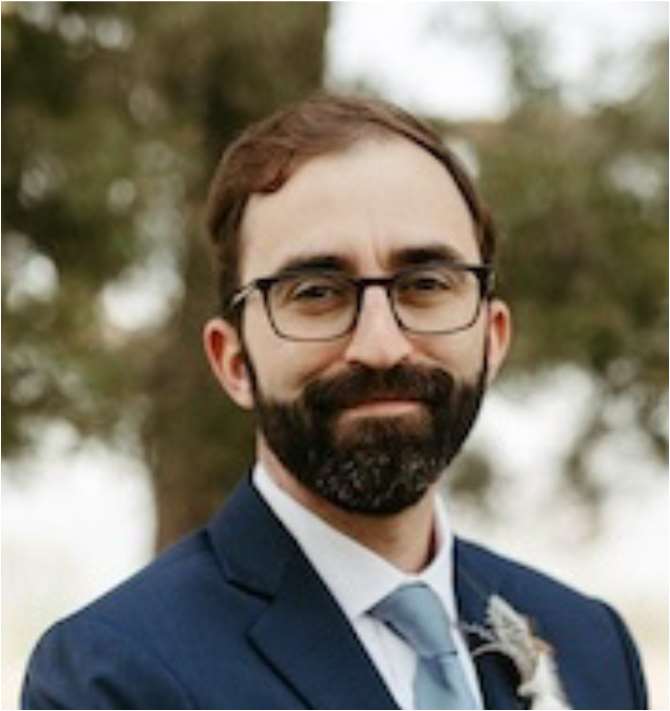
Alban Holyoke, MD
Alban Holyoke graduated from Wright State University School of Medicine and completed his residency in Emergency Medicine at Yale. He is currently an Emergency Physician in the Bay Area at Santa Clara Valley Medical Center and Kaiser Redwood City. His hobbies range from fly fishing to sailing to pinball.
“I want to cultivate the skills to treat patients’ symptoms, but also help them understand their own humanity and hopefully gain new understanding of my own human experience. It is an exciting time to be in medicine with advances in medications, devices and new technology, but medicine at its core is about people, suffering, and our humanity, and that is what I am seeking in palliative care.”
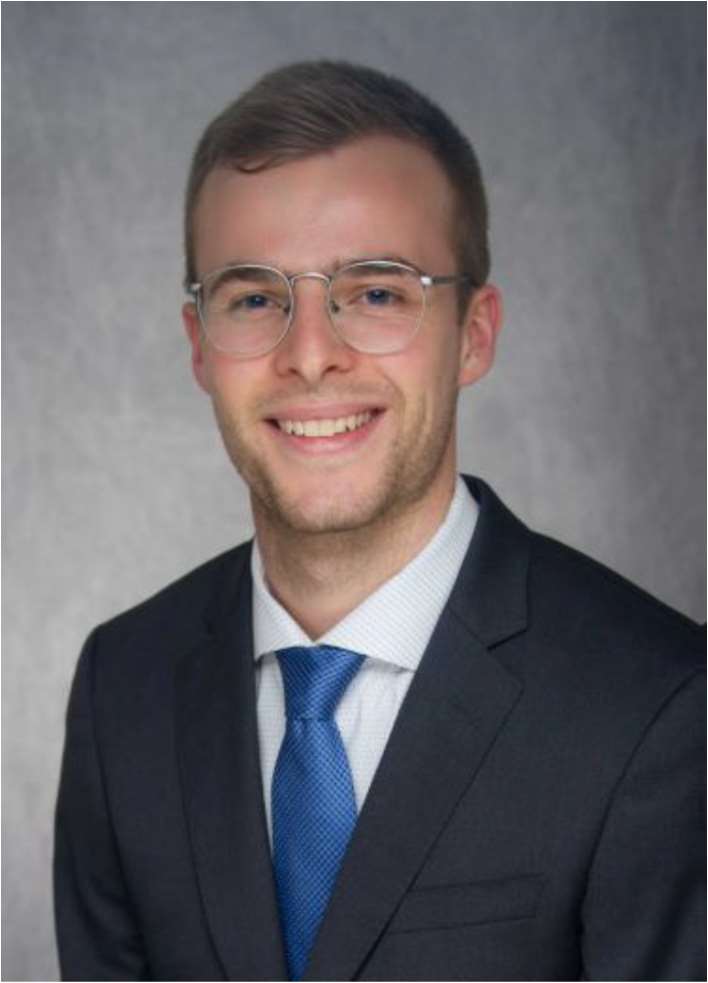
Sawyer Kieffer, MD
Sawyer Kieffer completed his medical education at the University of Iowa and is currently an Internal Medicine resident at Thomas Jefferson University. Outside of work, he enjoys woodworking, rock climbing, and cycling.
“Working with [patients with serious illness] made me realize that I am even more passionate about another side of medicine- the side that’s not about curing and fixing and diagnosing and doing, the side that honors the true privilege of caring for another human by providing physical and psychological comfort during serious illness and the most vulnerable transition from life to death.”
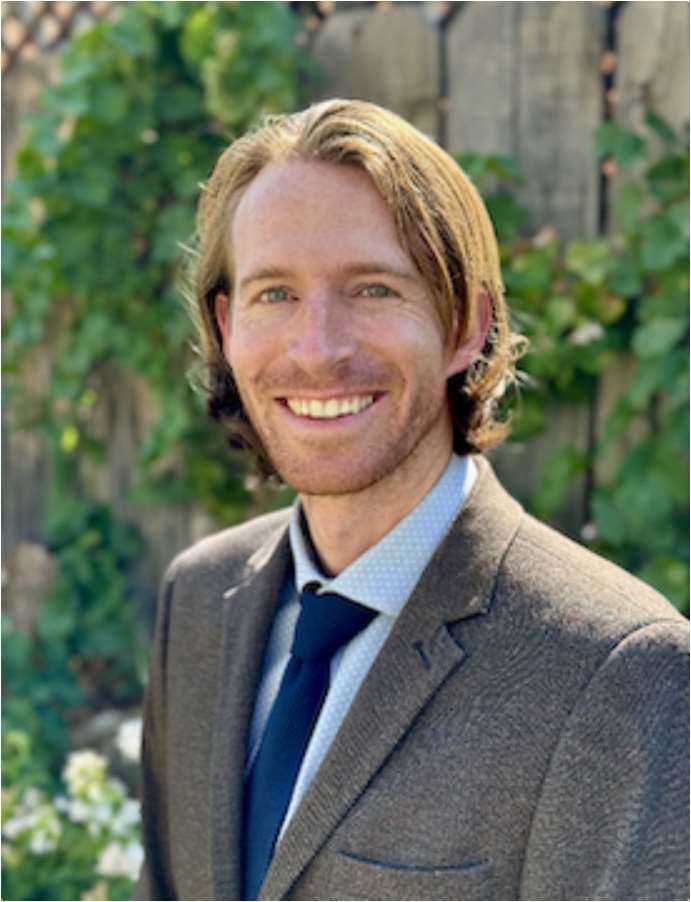
Michael McEnany, MD
Michael McEnany attended Wake Forest University’s School of Medicine and completed his residency training in Emergency Medicine at the University of New Mexico. He is currently an Emergency Medicine physician at Northern Inyo Hospital in Bishop, CA. His interests include connecting with the natural world and learning to play the fiddle.
“The methods and goals of hospice and palliative care, to me, represent the core of medicine. Listening with patience, responding to vulnerability with compassion, addressing the origins and continuance of suffering, while openly and bravely discussing the existential nature and threat of illness are all aspects of medicine that I strive to embody.”
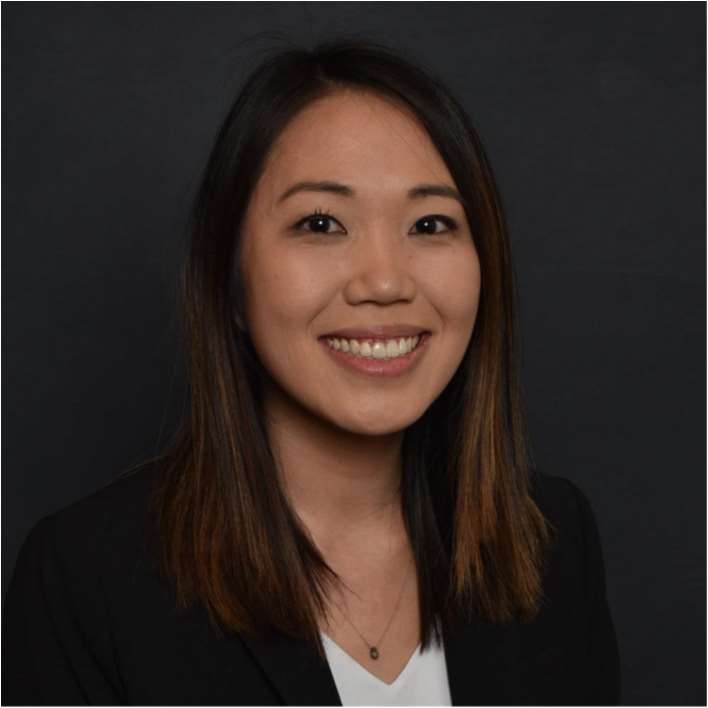
Michelle Quan, MD
Michelle Quan graduated from UCLA’s School of Medicine and completed her Internal Medicine residency at UC Davis, where she was a chief resident. She is currently the Medical Director of the Internal Medicine Pre-Operative Services at UC Davis. Outside of work, she enjoys pottery, graphic design, basketball, and baking.
“I am pursuing a fellowship in palliative care because it offers the opportunity to provide comprehensive emotional and physical care. It allows me to continue advocating for patients, ensuring they receive the support and dignity they deserve as they navigate life’s most challenging and uncertain moments.”
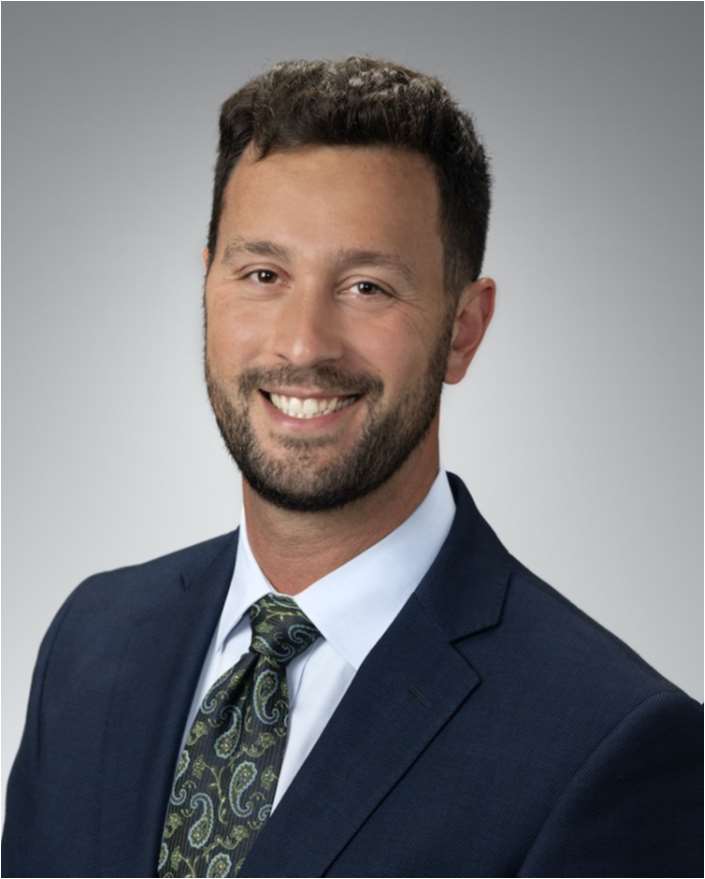
Kim Winiker, MD
Kim Winiker earned his MD from the University of Massachusetts School of Medicine and is currently a chief resident at the University of Pittsburgh in Internal Medicine/Pediatrics. His hobbies include skiing, yoga and meditation, ultimate Frisbee, and travel.
“In residency, I gravitated toward interactions with the sickest patients, learning about their hopes, passions, and fears, and using these connections to guide my clinical decision-making. I resolved to pursue a career in Palliative Medicine to continue providing care to this complex patient population. I have seen skillful and kind palliative physicians lead patients and families through harrowing circumstances to deeply meaningful outcomes.”
UCSD Medical School 401
The UCSD School of Medicine requires all medical students in their fourth year to spend clinical time with a hospice program. Currently, about half of the students do their clerkship with The Elizabeth Hospice.
Residency Programs
Scripps Mercy Hospital Internal Medicine requires its residents to spend clinical time with The Elizabeth Hospice.
The Family Medicine Residency Program of the Southwest Healthcare Medical Education Consortium in Temecula and Murrieta offer their physicians an opportunity to experience outpatient palliative care firsthand through a clinical training experience with The Elizabeth Hospice.
We welcome individual residents from various training programs who request to spend clinical time with our physicians and hospice teams.
Fellowship Program
The Elizabeth Hospice participates in the joint UCSD/Scripps Fellowship Program in Hospice and Palliative Medicine. It is one of the largest in the country, with eight physician fellows participating in the one-year training program that starts on July 1 each year. They divide their training between subspecialty consultation services in the hospitals of UCSD and Scripps, the ambulatory outpatient clinics at UCSD and Scripps, and hospice care. Many of these physicians go on to practice in the region.
